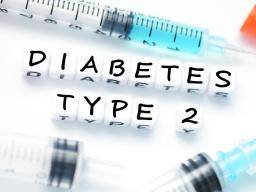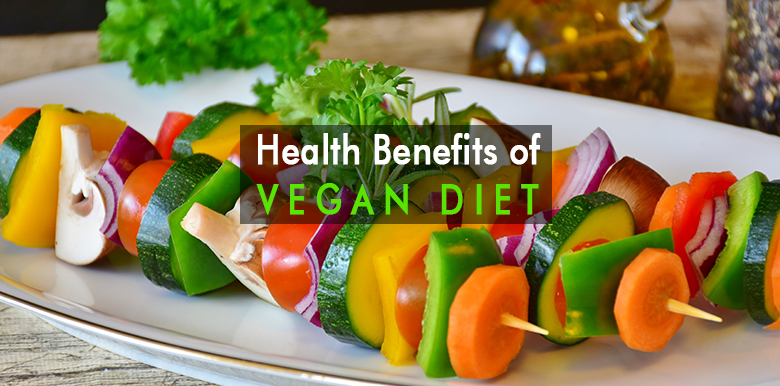Veganism is defined as a way of living that attempts to exclude all forms of animal exploitation and cruelty, whether for food, clothing or any other purpose.
For these reasons, the vegan diet is devoid of all animal products, including meat, eggs and dairy.
Health benefits of Vegan Diet –
Blood Sugar and Type 2 Diabetes

Type 2 diabetes
Adopting a vegan diet may help keep your blood sugar in check and type 2 diabetes at bay.
Several studies show that vegans benefit from lower blood sugar levels, higher insulin sensitivity and up to a 78% lower risk of developing type 2 diabetes than non – vegans.
In addition, vegan diets reportedly lower blood sugar levels in diabetics up to 2.4 times more than diets recommended by the ADA, AHA and NCEP.
Part of the advantage could be explained by the higher fiber intake, which may blunt the blood sugar response. A vegan diet’s weight loss effects may further contribute to its ability to lower blood sugar levels.
Lower cancer risk

Lower risk of cancer
Meat eaters are at a higher risk of colorectal and prostate cancers.
The vegan diet consists of far higher volumes of legumes, fruits, and vegetables, fiber, and vitamin C. These are believed to protect against a variety of cancers.
Bone health

Bone health
Calcium is important for bone and dental health. For the average American, milk and cheese are good sources of calcium.
For a vegan, figs, kale, spinach, black-eyed peas, and turnip greens can be excellent sources of calcium.
Vegan milk alternatives are becoming more widely available, such as soy milk, almond milk, and even vegan cheese.
Bones also need vitamins D and K, potassium, and magnesium. Soy, fruit, and some vegetables contain appropriate amounts of these nutrients without the health risks of animal fats. Daily exposure to the sun also enables the body to make vitamin D.
Vegans have also shown more efficient absorption of calcium and bone metabolism, the process through which new bone tissue is formed.
Heart health

Heart health
People on a vegan diet often take in fewer calories than a those on a standard Western diet. This can lead to a lower body mass index (BMI) and a reduced risk of obesity.
A lower BMI is linked to lower overall concentrations of LDL cholesterol and slightly lower blood pressure, even compared with vegetarians who continue to drink animal milk.
Lower levels of harmful cholesterol mean that vegans have a lower risk of mortality from stroke and ischemic heart disease than people who eat meat.
Other plant compounds can help to control different genes linked to cardiovascular disease, arterial plaque, and tumor growth.
An entirely plant-based diet has low health risks, but careful planning is needed to maintain nutritional balance. Vegans may be more prone to shortages of vital nutrients.
A person considering a fully vegan diet is advised to stop eating animal produce gradually. Incorporate one meat alternative first, then prefers to other non-animal produce, eventually excluding animal produce completely.
